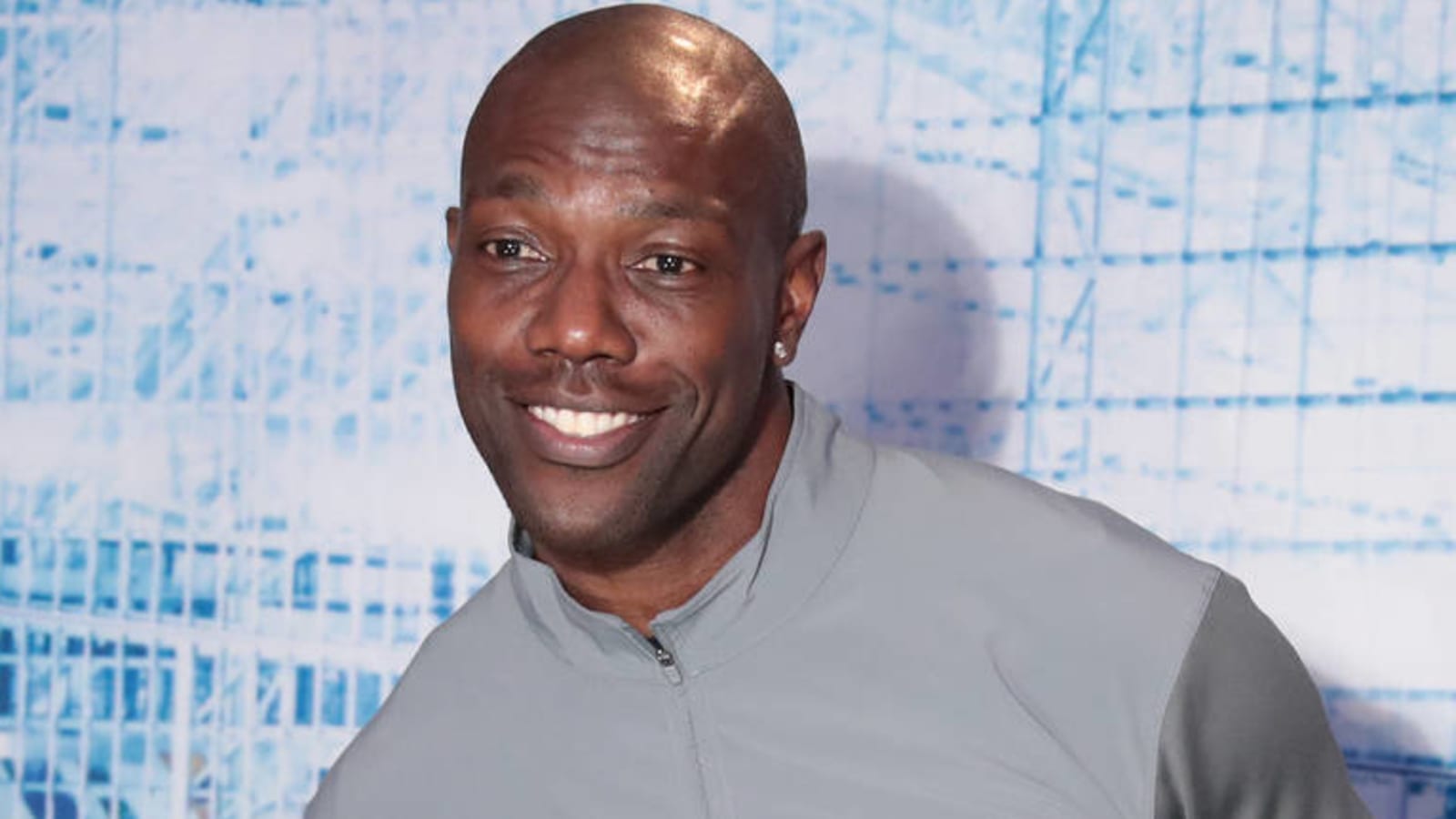
Will Terrell Owens' move lead to future Hall of Fame defections?
Terrell Owens didn’t have to wait as long as some prolific players to get into the Pro Football Hall of Fame. For example, former Washington receiver Art Monk waited until his eighth year of eligibility despite holding the record for the most receptions in NFL history when he retired in 1995. Owens made it in just his third year.
While T.O. is second in career receiving yardage, he wasn’t tops in any of the major individual career stats. Unlike Monk, he never played for a Super Bowl champion, a distinction that, fair or unfair, frequently plays a part in HOF consideration. So why was T.O.’s snub the stuff of national outcry and Monk’s mostly the business of Washington fans?
To be sure, the snubbing of both players had observers complaining about the politics of the voting process, how sportswriters and their grudges often dictate something that should seem obvious. In many ways, the two had diametrical personalities, and the extremes were held against them. If anything, Monk wasn’t flashy enough, and Owens was too much so.
That Owens was considered too brash and too much of a drama-seeker touches on a lot of the generational and racial debates that play out in modern sports discourse. Fans bristle when sportswriters, the people who end up voting on the Hall, tell players to settle for what is best for the team and act like they’ve been there before when they succeed.
If the Hall of Fame is truly a pantheon of fame, there would be no question that Terrell Owens belongs. He was among the most talked-about players of his era, a undeniable magnet for attention. He had crossover fame like few others in the league. Some of the attention he received might have been negative but not with violent arrests or any of the ways that tarnish the NFL these days.
Hall voters, however, often view induction as a reward for rectitude, perceived selflessness or simply reliable media access. Sometimes, a player’s résumé is so good, so surpassingly iconic, he’s automatic, but Owens had just enough shortcomings, like the lack of a title, for detractors to find something to keep him out. A generation of young fans wouldn’t have cared enough about Monk’s quiet grace to care about his snub, but fans wanted to see Owens’ messy humanity acknowledged.
After T.O. was left out in 2017, his second year of eligibility, he tweeted about his disgust for the Hall, saying it meant nothing to him.
HOF is a total joke. Honestly, doesn't mean anything to me to get in beyond this point. https://t.co/wJJ8vVSp9d
— Terrell Owens (@terrellowens) February 5, 2017
That’s quite a contrast to this past winter, when Owens tweeted to celebrate after being inducted and linked to a HOF hat that included his own personal logo. Obviously, on some level, Owens does care about the Hall — enough that he wants to punish it for making him wait.
So while T.O. has as-yet-unannounced plans to celebrate on enshrinement weekend, he won’t be in Canton to give the customary speech. Some see the move as petty, and that’s a reasonable stance. It’s also very good revenge. Hall voters typically see themselves as keepers of the essence of the game. They think they get to dictate the course of NFL history, no matter what the numbers show or the public believes. For them to cave and reward T.O. only for him to refuse to be part of the spectacle pricks their inflated sense of importance.
And, of course, it could lead to other embittered players being inspired to stay away. Athletes have been offended by any number of perceived slights over the years, from negative descriptions in columns to subpar "Madden" ratings.
Linebacker James Harrison refused to go to the White House in 2009, not for the sort of political reasons you see today, but because President Barack Obama would have met with the Arizona Cardinals had they defeated Harrison’s Steelers in the Super Bowl that year. This desire not to meet exclusively with the Steelers regardless of outcome is certainly among the stranger examples, but it does illustrate that sometimes athletes feel jilted for perhaps silly reasons. With this precedent set, who knows who else might decline to attend? After all, Harrison himself just retired. Who knows how he might react if it takes him several years of eligibility to get voted in?
Then there are political considerations. The Hall of Fame is another way for the NFL to apply a sheen of respectability to itself. This is a league that grinds players into dust and blackballs those who use it to bring visibility to social causes using methods owners don’t support. By enthusiastically joining the Hall, a player is willingly joining the propagandizing efforts of the league to show that a great playing career — something that requires luck as much as pure greatness — equals immortality, even if the NFL has little time for the vast majority of players once they are done on the field.
It may be years before the NFL has to face that kind of scenario, and perhaps tensions will cool by the time someone like Richard Sherman becomes eligible. That’s a faint hope to bank on given how things have gone for the NFL the last five years. Now T.O. gives fellow jilted stars a model for getting the accolades and still sticking it to the supposed guardians of the sport.
More must-reads:
- Cris Carter shades Terrell Owens for skipping HOF induction ceremony
- Twitter rips Terrell Owens for HOF decision
- The 'NFL Comeback Player of the Year' winners
Breaking News
Customize Your Newsletter
 +
+
Get the latest news and rumors, customized to your favorite sports and teams. Emailed daily. Always free!

